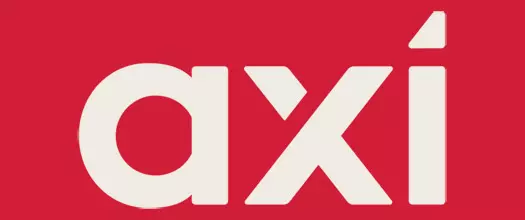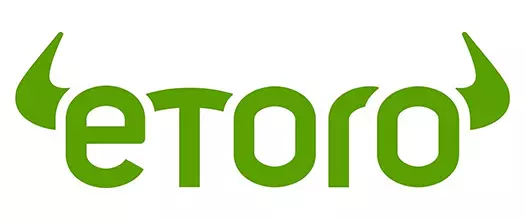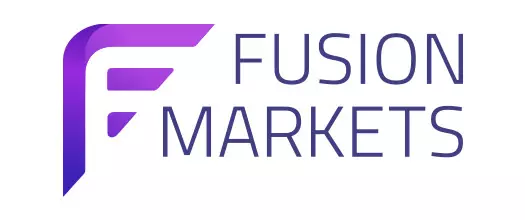The Forex market has experienced a significant surge in popularity in recent years, with traders from all over the world participating in the global currency exchange. The UK, as a major economic hub, has its fair share of Forex traders, with an average daily reported turnover of roughly $4.05 trillion (around £3.744 trillion) in April 2025, up by 26% compared with October 2024. Selecting a suitable payment method that allows you to move funds to and from your live balance effortlessly is one of the key aspects of Forex trading. PayPal positions itself as a viable option for UK traders because of its convenience, security and speed. However, not all Forex brokers accept PayPal payments, which can be a challenge for traders who prefer this method.
 Axi
Axi eToro
eToro Pepperstone
Pepperstone Plus500
Plus500 Fusion Markets
Fusion MarketsBelow you can find more information about the best PayPal trading platforms in the UK:
- Axi is an FCA-licensed broker that offers instant and free PayPal deposits, with limits ranging from £/$10 to £/$10,000 per transaction. The broker supports several base account currencies, including GBP, USD, EUR, PLN and CHF. PayPal withdrawals start from £/$10 and are also processed instantly.
- At eToro, traders can take advantage of instant PayPal deposits in GBP, USD, EUR and AUD. The minimum first-time deposit in the UK is £/$50, while subsequent payments have a lower minimum limit of £/$10. The maximum single deposit with PayPal is £/$10,000.
- Regulated by the FCA, Pepperstone enables clients to fund their live accounts using several payment methods, including PayPal, Visa, Mastercard, Apple Pay and Skrill. The minimum deposit is £10. Withdrawals are fee-free for customers from most jurisdictions and are processed on the same day.
- Plus500 accepts deposits with PayPal, Visa, Mastercard, Trustly, Apple Pay, Google Pay and bank transfers. Transaction limits are method-specific. The FCA-regulated broker stores clients’ funds in segregated accounts in line with UK and EU regulations.
- Fusion Markets supports instant PayPal deposits with zero fees in multiple currencies, including the pound sterling. There are no minimum requirements for setting up an account, but minimum PayPal deposits generally start at $10, or around £7.50.
In this article, we will explore the best PayPal brokers in the UK, the process of using this payment method for trading, and the advantages and disadvantages it offers. We will also discuss the importance of Know Your Customer (KYC) procedures, the regulatory environment in the UK, and how to choose a reliable PayPal broker that accepts traders from the UK.
Is PayPal Popular with UK Forex Traders?
PayPal is one of the most commonly used online payment methods in the UK. Many residents use it for e-commerce, subscription payments and peer-to-peer transactions because of its convenience and security. According to the 2024 PayPal e-Commerce Index report, as many as 74% of UK consumers use PayPal for online purchases, up from 69% in 2023. Unsurprisingly, PayPal is also hugely popular among Forex traders because of its security, ease of use and flexibility.
Many Forex traders prefer PayPal due to its ability to facilitate seamless and fast transactions, which is essential for trading in this volatile market. Additionally, PayPal’s buyer protection policy provides an extra layer of security, giving traders peace of mind when making transactions.
How to Use PayPal for Payments at UK Forex Brokers?
Using PayPal for payments at online Forex brokers is a relatively straightforward process. First, traders need to create a PayPal account and link it to their bank account or credit card. Once the account is set up, traders can deposit funds into their live balance using PayPal. The process typically involves logging in to the trader’s Forex account, selecting PayPal as the payment method and entering the desired deposit amount. The funds are then transferred from the trader’s PayPal account to their live balance almost instantly in most cases.
FCA-licensed brokers normally require traders to withdraw their funds to the same method they used to deposit. The withdrawal process is similar, as you must select the wallet from the available options and enter your preferred withdrawal amount. While withdrawals are not as fast as deposits, it usually takes several minutes to a few hours to receive the money in your PayPal account once the broker approves the transaction.
PayPal also offers its One Touch feature, which allows traders to log in to their e-wallet automatically every time they initiate a payment to their trading account. This feature can be convenient for people who transact frequently, but it also requires traders to be cautious and ensure that their account is secure. Traders should also be aware of the risks associated with using PayPal, such as phishing scams and hacking, and take all necessary precautions to protect their accounts and personal information.
Mandatory KYC Procedures for PayPal Users at UK Forex Brokers
To adhere to anti-money-laundering regulations, FCA-authorised brokers require all new clients to undergo obligatory KYC (Know Your Customer) checks. This typically involves submitting identification documents (a passport, driving licence, national ID card or residence permit), alongside proof of address such as a utility bill or bank statement. Many brokers also accept copies of rental agreements, mortgage statements, tax returns and residence certificates for this purpose.
During onboarding, customers can take photos of the requested documents using their smartphones or tablets and send the copies to the relevant department during registration or via email. Utility bills and bank statements should be no older than six months in most cases. Keep in mind that many FCA-licensed brokers reject mobile phone bills as proof of address. Illegible or cropped pictures will not do, either.
As previously stated, most brokers implement the ‘same method’ rule, which stipulates that withdrawals must be returned to the same PayPal account used for the initial deposit. This practice ensures adherence to the AML requirements mandated by both the Financial Conduct Authority (FCA) and international regulatory bodies.
Advantages and Disadvantages of Using PayPal at Online Brokers
PayPal has become a popular payment method among Forex traders because of its convenience, security and speed. However, like any other banking solution, it has its advantages and disadvantages. In this section, we will explore the benefits and drawbacks of transacting with PayPal at online Forex brokers.
The advantages of using PayPal include:
- Convenience: PayPal allows you to make fast and secure transactions, an ideal choice for Forex traders.
- Security: PayPal’s buyer protection policy provides an added layer of security, giving traders peace of mind when transacting.
- Easy to use: PayPal is an intuitive e-wallet that is simple to set up and use, even for those who are not very tech-savvy.
- Fast transaction processing: PayPal’s rapid processing times suit Forex traders who need to make timely transactions. The One Touch feature enables even faster payments, with an automatic sign-in to one’s PayPal account.
- Low fees: PayPal’s fees are generally lower than those of other payment methods, and brokers rarely impose deposit or withdrawal charges on transactions processed via this e-wallet.
The disadvantages of using PayPal include:
- Fees: PayPal may charge transaction fees, which can eat into traders’ profits.
- Currency conversion fees: PayPal may charge currency conversion fees, which can increase the cost of trading. This should be no issue if your PayPal and trading accounts are both denominated in pound sterling.
- Restrictions: Some Forex brokers may impose limitations on using PayPal, such as minimum deposit or withdrawal limits.
- Security risks: While PayPal is a secure payment method, there is always a risk of security breaches or hacking, which can compromise traders’ personal and financial information.
- Risk of account freezes: PayPal has a reputation for freezing or limiting accounts with little warning if it detects unusual activity, disputes or potential risks. This can severely disrupt your trading activities, as your funds can be held for extended periods during investigations.
- Verification requirements: PayPal requires traders to verify their accounts, which can be a time-consuming process.
How to Pick a Reliable PayPal Broker in the UK?
Identifying a dependable PayPal broker requires careful evaluation of several key aspects. First, traders must verify that the broker is regulated by the Financial Conduct Authority (FCA), the official body overseeing the UK financial industry. Having an FCA licence ensures the broker operates in line with high standards and offers a secure trading environment. Additionally, traders should examine sites like Trustpilot for user reviews and ratings to gauge the service quality and reliability of the broker.
They can also check the FCA licensee database to ascertain that the regulator has not taken any prior disciplinary actions for non-compliance against their chosen broker. Moreover, traders need to examine the broker’s fees and commissions, alongside its payment terms and conditions, to confirm they are competitive and transparent. We recommend you also evaluate the broker’s trading platform to ensure it is intuitive enough and equips you with the right tools and features for effective trading.
Considering the quality of the broker’s customer support is also vital. The best brokers in the UK offer prompt and professional assistance at all hours of the day, including at weekends. Traders should additionally review the broker’s website and social media presence to understand its level of client interaction and dedication. By taking these elements into account, traders can make a well-informed choice and select a reliable PayPal broker in the UK that aligns with their unique needs and provides a secure trading experience.
PayPal Alternatives Suitable for UK Forex Traders
While PayPal is a common payment choice for online transactions, UK traders have several other suitable options, including Skrill, Neteller and bank transfers. Skrill and Neteller are e-wallets offering swift and secure transactions, much like PayPal. Accepted by many FCA-regulated brokers, they provide benefits such as competitive fees, flexibility and short processing time-frames. Both wallets enable users to register sterling-denominated accounts, preventing them from incurring unnecessary currency conversion fees.
Bank transfers pose another viable alternative for traders, although processing times might be longer and fees could be higher. Credit and debit cards are also frequently accepted by online brokers. Traders should carefully assess their choices, considering factors such as fees, security, transaction speed and convenience when selecting a payment method. It is important to check the specific requirements and limitations imposed by the respective broker regarding alternative payment methods, as these can differ.
Beyond these common alternatives, some brokers may also offer other region-specific payment solutions. Below, traders can find a comparison table to assist them in determining which payment method best aligns with their needs based on transaction speed, fees, security and other relevant criteria.
| Feature/Aspect | PayPal | Credit/Debit Cards | Bank Transfers | Skrill | Neteller |
| Transaction Speed | Instant | Instant | 1-5 business days | Instant | Instant |
| Fees | Moderate fees for withdrawals and currency conversion | Varies by bank; may include foreign transaction fees | High fees for international transfers | Moderate fees for deposits/withdrawals | Moderate fees for deposits/withdrawals |
| Security | High (buyer protection) | High (fraud protection) | High (bank-level security) | High (2FA, encryption) | High (2FA, encryption) |
| Acceptance | Accepted by many UK brokers | Widely accepted | Widely accepted | Accepted by some UK brokers | Accepted by some UK brokers |
| Withdrawal Speed | Instant to 1 business day | Between 1-3 business days | 1-5 business days | Instant to 1 business day | Instant to 1 business day |
| Deposit Speed | Instant | Instant | 1-5 business days | Instant | Instant |
| Chargeback Availability | Yes | Yes | No | No | No |
| Multi-Currency Support | Yes | Yes | Yes | Yes | Yes |
FAQ
Can I open a UK Forex trading account and deposit funds via PayPal if my PayPal account uses a different currency?
Yes, you can often deposit using a PayPal account in a different currency. However, PayPal will likely perform a currency conversion and apply its own exchange rate and fees. Your UK broker might also have its own currency-conversion policies or accept GBP-only deposits. Check both PayPal’s and your broker’s terms for the potential costs.
What security measures should UK Forex traders take when using PayPal to fund their trading accounts?
Ensure you have strong, unique passwords for both your PayPal and trading accounts, and enable two-factor authentication wherever possible. Be cautious of phishing emails and only log in to PayPal and your broker’s site through their official channels. Avoid using public Wi-Fi networks, as they can expose your personal data to potential cyber threats. Regularly review your transaction history for any suspicious activity.
If my UK Forex broker offers bonuses, can I typically claim them when depositing via PayPal?
Generally, PayPal deposits are eligible for broker bonuses. Some brokers might have specific exclusions for certain payment methods, though. Always carefully review the terms and conditions of the bonus offer to confirm PayPal’s eligibility.
What happens if I close my PayPal account? Will this affect my ability to withdraw funds from my trading account?
Closing your PayPal account will prevent you from withdrawing funds back to that specific account. You must contact your broker’s support team to arrange an alternative withdrawal method, such as a bank transfer. This might involve providing new banking details and undergoing additional verification.
Are there any specific reporting requirements for Forex traders regarding PayPal transactions with their brokers for tax purposes?
You are generally responsible for tracking and reporting any profits or losses from your Forex trading activities to HMRC for tax purposes, regardless of the payment method used, including PayPal. Your broker may provide transaction statements, but it is your responsibility to ensure accurate reporting according to UK tax laws. Consult with a tax adviser if you have specific questions.